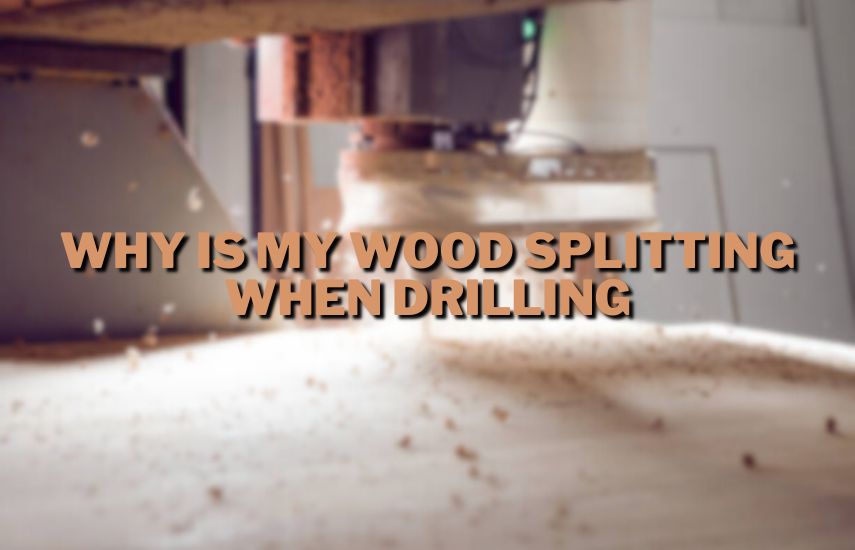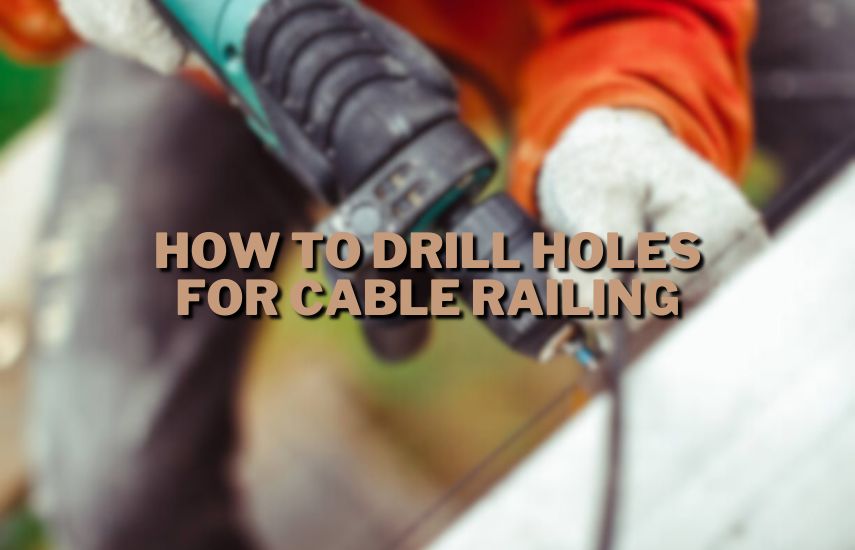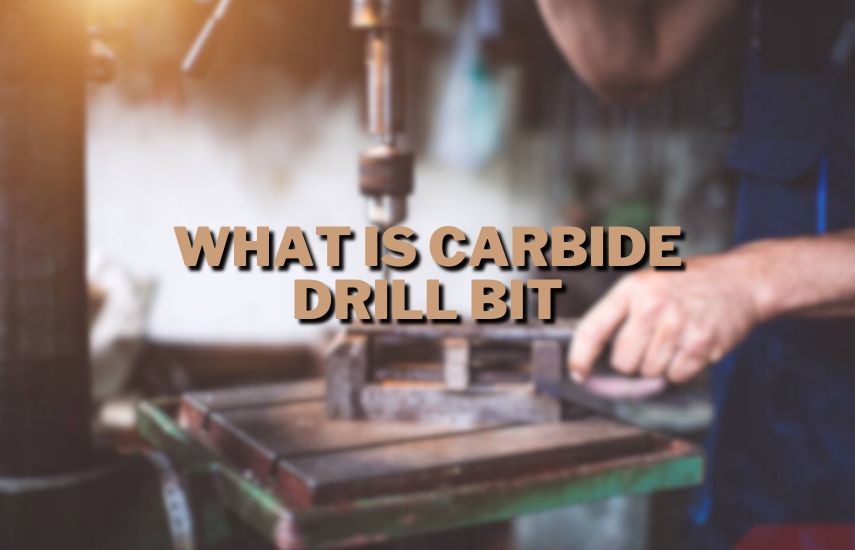Hey there! Have you ever wondered if an electric screwdriver can do more than just driving screws? Well, you’re in for a surprise. We often associate electric screwdrivers with, well, screwing things in. But did you know that some electric screwdrivers can also drill holes? Yes, you heard that right!
Can An Electric Screw Driver Drill Holes? Electric screwdrivers can definitely be used for drilling holes. Many models now have a drill mode option, making them versatile tools for both screwing and drilling tasks in various DIY projects.
These handy tools have a hidden talent – they can switch from screwing mode to drilling mode, allowing you to create holes in various materials like wood, plastic, and even some metals. This dual functionality makes them quite versatile for your DIY projects. So, let’s dive into the world of electric screwdrivers and explore how they can be more than just your average screw-driving companions.
The Limitations of an Electric Screwdriver
An electric screwdriver is a useful tool that simplifies tasks like assembling furniture and fixing things around the house. While it offers many advantages, it’s important to be aware of its limitations to avoid any surprises during your projects.
Power and Torque
One of the limitations of an electric screwdriver is its power and torque compared to traditional drills. Electric screwdrivers are designed for light to medium tasks. For heavy-duty projects involving drilling into tough materials like concrete or metal, a more powerful tool like a corded drill might be necessary.
Depth and Precision
When it comes to drilling holes, an electric screwdriver has its limitations in terms of depth and precision. It might struggle with drilling deep holes due to its shorter bit length, and maintaining precise drilling angles can be challenging, especially for intricate projects that demand accuracy.
Battery Life
Most electric screwdrivers operate on rechargeable batteries. While convenient, they can be limited by their battery life. Prolonged projects might require frequent recharges, leading to interruptions and potential delays in your work.
Versatility
Although electric screwdrivers can often double as drills, they might lack the versatility of dedicated drills. They might not support various drill bit sizes and might not be suitable for specialized drilling tasks, like creating large holes or using spade bits.
Overheating and Durability
Extended or intense use of an electric screwdriver can lead to overheating, affecting its performance and potentially shortening its lifespan. These tools might not be as durable as heavy-duty drills designed for rigorous usage in demanding environments.
The Best Drill Bits for an Electric Screwdriver

Choosing the right drill bits for your electric screwdriver is crucial to ensure efficient and effective drilling. Different projects require different types of bits, and understanding your options will help you achieve the best results.
Standard Twist Drill Bits
These are the most common and versatile types of drill bits. They work well with electric screwdrivers for drilling holes in wood, plastic, and light metals. Ensure the bits are of good quality to prevent overheating and to maintain sharpness.
Spade or Flat Wood Bits
Ideal for larger holes in wood, these bits have a flat, paddle-like shape. They are suitable for tasks like creating holes for plumbing pipes or cable runs. Keep in mind that they might require a higher torque setting on your electric screwdriver.
Masonry Bits
For drilling into concrete, brick, or stone, masonry bits are essential. They have a carbide tip that helps penetrate tough materials. While an electric screwdriver can work with masonry bits, it might struggle with very hard materials.
Countersink Bits
When you need screws to sit flush with the surface, countersink bits are handy. They create a tapered hole that allows the screw head to fit neatly. These bits are useful for finishing touches and aesthetic appeal.
Hex Shank Bits
Many electric screwdrivers have a hexagonal shank design. Choosing drill bits with hex shanks ensures a secure fit and prevents slipping during operation, enhancing overall safety and efficiency.
Safety Tips for Drilling with an Electric Screwdriver
Using an electric screwdriver for drilling can be efficient, but safety should always come first. Following proper safety guidelines while using this tool is essential to prevent accidents and ensure successful outcomes.
Wear Protective Gear
Before you start drilling, put on safety goggles to protect your eyes from debris and particles. Depending on the project, consider wearing gloves to safeguard your hands from potential injuries.
Check the Work Area
Inspect your work area and remove any obstacles or clutter that could interfere with your drilling. Ensure there are no electric wires or plumbing pipes behind the drilling surface to avoid damaging them.
Secure the Material
Before drilling, secure the material you’re working on using clamps or other stabilizing tools. This prevents the material from shifting during drilling and reduces the risk of accidents.
Choose the Right Speed and Torque
Adjust the speed and torque settings on your electric screwdriver based on the type of material you’re drilling into. High speed might work for soft materials like wood, while lower speed and higher torque might be needed for tougher materials.
Use Proper Drill Bits
Select the appropriate drill bit for the material you’re working with. Using the wrong bit can lead to overheating, reduced efficiency, and even breakage. Ensure the drill bits are securely fastened to prevent them from slipping during operation.
Alternatives to an Electric Screwdriver for Drilling Holes

While an electric screwdriver is a versatile tool, there are situations where alternatives might be more suitable for drilling holes. Exploring these alternatives can offer flexibility in your DIY projects.
Corded Drill
A corded drill is a powerful alternative for drilling holes in various materials. It provides consistent and strong torque, making it ideal for heavy-duty tasks like drilling into concrete or metal. Corded drills don’t rely on battery life, ensuring uninterrupted work.
Cordless Drill
Similar to an electric screwdriver, a cordless drill offers more power and versatility for drilling holes. They come with interchangeable drill bits and adjustable settings, making them suitable for a wide range of projects. Opt for one with a higher voltage for increased drilling capability.
Hammer Drill
For drilling into tough materials like masonry, a hammer drill is a great option. It combines drilling with a hammering action, allowing it to break through hard surfaces more effectively. This is particularly useful for projects involving concrete or brick.
Handheld Manual Drill
In situations where power tools aren’t available, a handheld manual drill (brace and bit) can be an alternative. While slower, it’s suitable for smaller drilling tasks in wood and other materials. This traditional tool is useful for precision and simplicity.
Auger Drill Bit and Brace
Auger drill bits paired with a brace provide an alternative for larger and deeper holes in wood. This combination offers greater control and is suitable for projects like woodworking or creating holes for plumbing pipes.
When to Use a Drill Instead of an Electric Screwdriver
Both drills and electric screwdrivers are valuable tools, but knowing when to use each one is crucial for successful DIY projects. Understanding their differences will help you make the right choice for your specific tasks.
Heavy-Duty Tasks
When dealing with heavy-duty tasks that involve drilling into tough materials like metal, concrete, or thick wood, a drill is the better choice. Its higher power and torque can handle these materials more effectively than an electric screwdriver.
Large Holes
If you need to create larger holes, especially those exceeding the diameter of a standard screw, a drill is the go-to tool. It’s designed to accommodate larger drill bits that can easily create holes of various sizes.
Depth and Precision
When drilling holes that require specific depths or precise angles, a drill is more suitable. Electric screwdrivers might lack the precision needed for certain projects that demand accurate drilling.
Masonry and Tough Surfaces
For drilling into masonry, brick, or other challenging surfaces, a drill with a hammer function is essential. This feature, typically not found in electric screwdrivers, allows the drill to break through these hard materials effectively.
Versatility
While electric screwdrivers can handle both screwing and drilling, they might not be as versatile as dedicated drills. If your project involves a combination of tasks, like drilling, driving screws, and mixing paint, a drill’s versatility makes it a better option.
Conclusion (Can An Electric Screw Driver Drill Holes)
An electric screwdriver can serve as a drill too. Many models have a drill mode for versatility in tasks. This feature makes it practical for both screwing and drilling, making DIY projects more efficient.
the versatility of an electric screwdriver extends beyond its name. It’s not just for screws; it can indeed drill holes too. This feature adds convenience to DIY tasks, combining both screwing and drilling functions. While it’s great for lighter tasks and softer materials, it’s essential to recognize its limitations in terms of power, depth, and precision.
For more demanding projects involving harder materials or larger holes, considering alternatives like drills or specialized tools becomes beneficial. Understanding when to use an electric screwdriver for drilling holes ensures effective and efficient outcomes in your projects.









